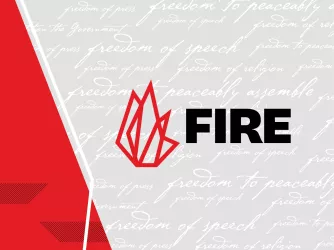Table of Contents
Embattled Southwestern College President Resigns Under Fire for Free Speech Violations
The president of California's Southwestern College (SWC), Raj K. Chopra, abruptly resigned on November 30 under a cloud of free-speech controversy. His administration shamelessly suspended four faculty members (later reduced to three) for their part in a protest that strayed beyond the school's unconstitutional free speech zone, a small patio area. Then, for more than a year, Chopra refused either to abolish or to suspend enforcement of the "free speech patio" policy, despite numerous letters from FIRE and the ACLU of San Diego & Imperial Counties warning him that he had subjected SWC to increasingly likely litigation.
The Chronicle of Higher Education summarizes the story:
Raj K. Chopra, who had led the San Diego-area community college, was caught up in several fights with faculty members, including charges that the college had suspended professors after a protest and tried to halt publication of the student newspaper. The resignation follows the election of several new members of the college district's governing board.
Chopra's resignation was effective immediately—something that rarely happens in higher education. Hopefully, SWC's new leadership will immediately recognize the school's legal and moral obligations to maintain free speech on campus.
Meanwhile, the president of Laramie County Community College (LCCC), Darrel Hammon, also resigned on November 29 (effective Dec. 31) under a cloud of his own. FIRE had received several reports of free speech violations at LCCC. As the Wyoming Tribune Eagle explains:
A report found that Hammon did not properly handle [a situation when he was leading students on an international trip]. Hammon later tried to prevent the critical report from being made public.
[LCCC Board of Trustees Chairwoman Brenda] Lyttle added that it appears the faculty distrusts the president, and employees think they could be fired for speaking out on campus issues.
In each case, faculty members and others who thought they were not being treated fairly on campus took action: they took the risk of criticizing the president, then worked to elect new board members. The new board members, in turn, made clear that it was time for a change in presidential leadership.
These cases show that sustained, engaged attention to free speech abuses on campus can be very effective. This is not quite a time for congratulation, but let us hope that these new beginnings for Southwestern College and Laramie County Community College mean a new era of free speech on both campuses.
Recent Articles
Get the latest free speech news and analysis from FIRE.

Why YouTube caving to Trump is cowardly

FIRE statement on the White House’s Compact for Academic Excellence in Higher Education

Trump’s tinseltown tariffs threaten free speech
